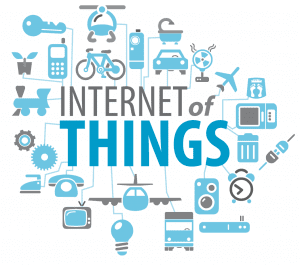by Abraham Casallas

When we look back at history we can pinpoint to certain epochs that have caused massive shifts in the way people behaved, thought about things and interacted with the world. Epochs such as the Renaissance, where the pursuit of knowledge allowed for new ideas to be developed. Ideas that would later on be used to fuel the industrial revolution, one epoch’s inventions used as tools to build the next slowly transforming the world.
It’s pretty safe to say we are undergoing one of these epochs at this very moment. One where centuries from now historians will look back at the twenty first century distinguish it as the time in which the Internet began to change humanity as we know it.
We are entering a time that has been coined as the Internet of Things (IoT). Where various devices from shoes to heart monitors are being assigned unique identifiers (IP addresses) and are being connected to the Internet, allowing them to share data and act on it.
The interaction between devices will transform the way you go about your everyday life. As you sleep, your smart-watch will monitor your sleep cycles and it will adjust the temperature on the bed for optimal sleep. Once your alarm clock goes off it will send a signal to your lights and tell your coffee pot to turn on. As you brush your teeth your mirror will display your schedule for the day, how deep you slept, and other health stats.
There are so many different products that are being connected to the internet on a daily basis, that we nearly exhausted the 4.3 billion IP addresses that the pioneers of the internet thought we would need. So much that the Internet Engineering Task Force (IETF), had to create a new algorithm that accounts for approximately 340 undecillion new addresses (that’s 36 zeros!).
The Internet of Things will give us control over our environments revolutionizing how we interact with the world, It will make our cities smarter, our workplaces more efficient and it will make our lives more fulfilling by saving us the time wasted on everyday mundane tasks. Over time it is expected to shorten the average 40 hour work week as we know it, allowing us to indulge in the things that really matter to us, spending time with the ones we love, doing the things that we are truly passionate about and making the most out of our most valuable resource: time.
